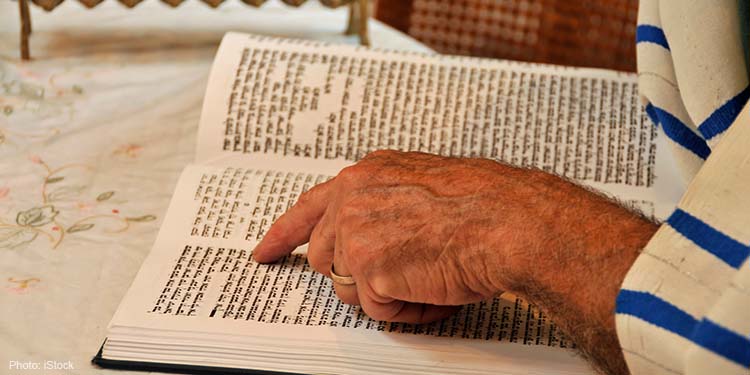The Goal of the Torah
Yael Eckstein | May 26, 2023

“The LORD bless you, my daughter,” he replied. “This kindness is greater than that which you showed earlier: You have not run after the younger men, whether rich or poor.” — Ruth 3:10
Today is the first day of Shavuot, also known as The Festival of Weeks or Pentecost. Initially, Shavuot was a harvest festival, but since the destruction of the Temple in Jerusalem, we have celebrated it as the giving of the Torah, which occurred seven weeks, or 50 days, after the Exodus. Since Shavuot is a nonworking holiday, these devotions were prepared for you in advance.
One of my favorite anecdotes from Jewish tradition is about a challenge posed to Hillel the Elder, a great Jewish sage who lived in the Holy Land during the first century BCE. A man approached Hillel and exclaimed, “Teach me the entire Torah while I am standing on one foot!” While other sages disregarded the man and his outrageous demand, Hillel accepted the challenge. He replied, “What is hateful to you, do not do to others. The rest is commentary – go study it!”
Hillel’s reply was a flip-flopped version of the biblical command to “love your neighbor as yourself” (Leviticus 19:18). Hillel understood that the essence of the Bible is how we treat one another. Certainly, Jesus taught his disciples the same principle in the Christian Bible (Matthew 5:43; 22:39; Mark 12:31; Luke 10:27; John 13:34).
The Goal of the Torah
On the holiday of Shavuot, we commemorate the giving of the Torah on Mount Sinai 3,000 years ago. On this holiday, the Book of Ruth is traditionally read in all synagogues. Ruth’s story is connected to this holiday because, among other reasons, it exemplifies taking the ideas of the Bible and implementing them into daily life. The goal of the Torah is not merely knowledge or spiritual transcendence; it is about incorporating biblical principles into your life and becoming an honest, kind, and caring person.
When we look into the story of Ruth, we find kindness woven throughout — in the way the harvesters left behind grain for the poor; in the way Ruth worked all day in the hot sun to collect sustenance for her mother-in-law, Naomi. Finally, we witness the kindness of Boaz to Ruth before he even knew who she was and Ruth’s kindness in marrying Boaz to continue her late husband’s family line. Ultimately, Ruth and Boaz became the great-grandparents of King David. The Book of Ruth is about the small everyday acts of kindness and the enormous impact that they have for eternity.
Every year on Shavuot, we accept the Bible all over again. One way to do this is to reaffirm the Bible’s central theme by doing acts of kindness and making helping others a top priority in our lives.
Your Turn:
What acts of kindness have been extended to you? How have you responded with acts of kindness? I would love to hear from you!
